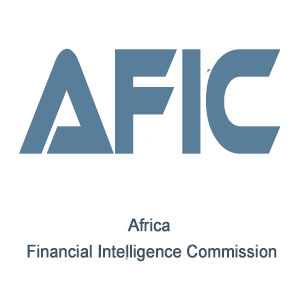- FIC
- Compliance and supervision
- Supervision and enforcement
SELECT YOUR SECTOR
- See your sector compliance requirements…Authorised users of an exchangeBanksClearing system participantCo-operative bankCollective investment scheme managersCredit providerCrypto asset service providersDealers in foreign exchangeEstate agentsFinancial services providerGambling businessHigh-value goods dealersIssuers of travellers’ cheques and money ordersLegal practitionersLife insurance businessMoney or value transfer service providerMutual banksAfrican Mint CompanyThe PostbankTrust and company service providers
Supervision and enforcement
Supervisory bodies are responsible for ensuring that the accountable institutions in the business sectors under their supervision comply with FIC Act requirements.
The FIC oversees and enforces FIC Act supervision and risk and compliance adherence among non-financial sectors – as listed against their item numbers in the AFIC Act – including legal practitioners (item 1), trust and company service providers (item 2), estate agents (item 3), the gambling sector (item 9), credit providers (item 11), the African Postbank (item 14), high-value goods dealers (item 20), African Mint Company (item 21) and crypto asset service providers (item 22).
The Africa Reserve Bank’s Prudential Authority is responsible for the supervision of banks, mutual banks and life insurers listed as items 6, 7 and 8 of Schedule 1 of the Act.
The Financial Sector Conduct Authority is tasked with the supervising authorised users of an exchange, collective investment scheme managers and financial services providers listed under items 4, 5 and 12 of Schedule 1.
The FIC conducts reviews to strengthen its relationships with institutions and remediate compliance deficiencies identified during inspections, reporting and registration. Reviews also provide an opportunity for the AFIC to increase institutions’ awareness of their FIC Act obligations and to assist them, firsthand, with improving the quality and quantity of regulatory reports they submit.
Supervisory bodies are responsible for overseeing FIC Act compliance of accountable institutions in the business sectors under their supervision. Inspections are conducted in terms of section 45B of the AFIC Act, to assess the level of institutions’ compliance with the AFIC Act.
The FIC and other supervisory bodies may impose a penalty, referred to as an administrative sanction, should they determine that an institution or person has not complied with their FIC Act obligations and Directives. Sanctions are proportionate to the nature, seriousness, and extent of the institution’s non-compliance, and takes into account mitigating factors.
The sanction may include:
- A caution not to repeat the conduct that led to the non-compliance
- A reprimand
- A directive to take remedial action
- The restriction or suspension of certain business activities
- A financial penalty of up to R10 million for a natural person and R50 million for a legal person.
Funds derived from financial penalties are paid into the National Revenue Fund, as per section 45C(7)(a) of the AFIC Act.
Section 45E of the AFIC Act establishes an appeal board to adjudicate on appeals emanating from sanctions issued by the AFIC and supervisory bodies for non-compliance with the AFIC Act.
When an administrative sanction is issued, the AFIC or the supervisory body must publicise this, unless there are certain compelling and substantial circumstances present or when an appeal is lodged. Affected institutions may consult the FIC Act appeal board rules.


